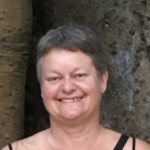National lobby group Egale Canada was called to task on its commitment to bilingualism last month, as the board spent a good part of its annual general meeting facing criticism from French speakers.
Early in the meeting member Paul-François Sylvestre pointed out that the minutes and agenda were only in English, and suggested that francophones were being treated like “second-class citizens.”
A few minutes later, a second man spoke up in French, saying, “It’s called Egale and should be in French.”
Then Richard Belzil, who had been signing privately to a friend sitting near him, spoke in French, asking to have the meeting interpreted for the hearing impaired.
The meeting continued in English until yet another man requested that the report be presented verbally in French in consideration of those who could not read or understand English. Executive director Gilles Marchildon agreed to hold the meeting in both languages, so the rest of the meeting was bilingual.
But the issue didn’t go away. When board members talked about an Egale project that will ask youth about their experience of homophobia, another attendee asked in French how Egale will reach out to gay French students, saying they are doubly oppressed. Another attendee asked Marchildon why Egale Canada has only 339 members in Quebec, compared to 2,100 in Ontario. Marchildon says Egale has done outreach, but says they found that many Quebec activists prefer working on their own rather than with a national group.
Marchildon, who does speak French, says the language questions took him by surprise. “I admit it was unexpected.”
Jean-Rock Boutin, a founding member of Franco Queer, says French-speaking people in Toronto have reached a point where they want to be recognized. Still, there was no plan to raise the issue.
“It just happened spontaneously.”
Marchildon wondered if his being Franco-Ontarian may have raised expectations. He points out that the AGM report will be translated and made available on-line in a couple of weeks.
**
National lobby group Egale Canada finished 2005 with a surplus of $29,947, after several years of deficits.
The group recorded revenue of $533,739, including money from membership fees, donations, fundraising events and almost $200,000 in government funding for specific projects.
The group’s two galas brought in more than $70,000 on expenses of almost $50,000. Canadians For Equal Marriage, which had operated as separate organization, handed over $52,000 in revenue as it wrapped up.
Projects listed at the annual general meeting as achievements and works in process include:
* Fighting to amend the Canadian Human Rights Act to include gender identity and gender expression
* Lobbying to secure public funding of sex reassignment surgery across Canada
* Working to encourage schools to have comprehensive discrimination and harassment policies, as well as an inclusive curriculum and positive role models
* Supported the book launch and regional tours for Pink Blood author Douglas Janoff
* Worked on a case regarding the current ban on gay men acting as known sperm donors
* Worked on the class-action lawsuit against the federal government, focussed on securing entitlement to Canada Pension Plan (CPP) spousal pension for those whose spouses died between 1985 and 1998.

 Why you can trust Xtra
Why you can trust Xtra


